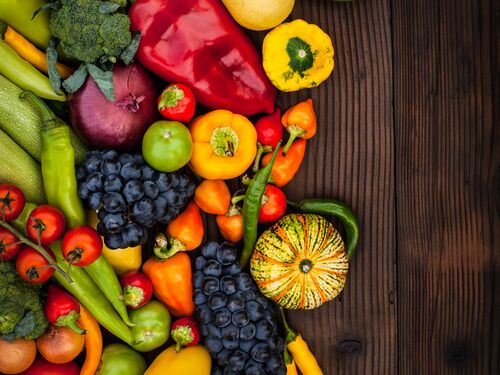Completed
A two-day public workshop will explore current knowledge and practice related to the application of advanced computation, big data analytics, and high-performance computing to support scientific advances in food and nutrition research. This workshop will be held in Washington, D.C. and virtually on October 10-11, 2023. To find information on registration and workshop details, please click on the event link below.
Featured publication
Workshop
·2024
Artificial intelligence (AI), machine learning (ML), and deep learning (DL) are promising tools that can be used to develop algorithms to better understand and predict interactions between food- and nutrition-related data and health outcomes. Understanding that additional research is needed to ident...
View details
Description
A planning committee of the National Academies of Sciences, Engineering, and Medicine will plan a 2-day public workshop to explore current knowledge and practice related to the application of advanced computation, big data analytics, and high-performance computing to support scientific advances in food and nutrition research. The workshop will feature invited presentations and discussions that will focus on providing guidance to researchers and policy-makers. Specific topic areas to be considered include:
- Definitions and methodology:
- Clear definitions of artificial intelligence (AI) and related activities such as machine learning (ML), deep learning (DL), etc.;
- Common methods, standards, and protocols; and
- Roles of AI as a tool for developing study designs.
- Current applications of AI/ML in food and nutrition research:
- Biomarker or bioactive discovery;
- Data collection related to food intake and assessment and monitoring methods – tools such as sensors, wearables, smartphone applications;
- Identifying relationships between foods/nutrients and health outcomes;
- Behavioral research – advancing behavior change by teaching personalized health behaviors from personalized data;
- Nutritional quality;
- Food systems;
- Food safety; and
- Ways that AI is being applied in other disciplines relevant to food and nutrition.
- Considerations for diversity, equity, and inclusion:
- Impact of AI, ML, and DL on underrepresented populations;
- Bias in development of datasets, algorithms, and applications; and
- Data privacy.
- Questions and considerations going forward, including research gaps:
- What is the greatest limitation to AI now in research and what is the future potential?
- What is the appropriate use of AI now and in the future? Hypothesis generation? Evidence” for decision-making? Where does it fit on the evidence hierarchy? Classifying subgroups, e.g. responders/non-responders?
- How can AI be used to increase efficiency (costs) and resiliency in the food system?
- What is needed to build trust in using advanced computation approaches within the food and nutrition research community?
- Workforce needs:
- Identify experience and skills for successful research teams. Identify training opportunities/exposure to data science methods for food and nutrition researchers.
The planning committee will organize the workshop, select and invite speakers and discussants and moderate the discussions. A Proceedings-in-Brief and a final workshop proceedings of the presentations and discussions from the workshop will be prepared by a designated rapporteur in accordance with institutional guidelines.
Contributors
Sponsors
Texas A&M University
U.S. Department of Agriculture - Agricultural Research Service
Staff
Alice Vorosmarti
Lead
Melanie Arthur
More like this
Discover
Events
Right Now & Next Up
Stay in the loop with can’t-miss sessions, live events, and activities happening over the next two days.
NAS Building Guided Tours Available!
Participate in a one-hour guided tour of the historic National Academy of Sciences building, highlighting its distinctive architecture, renowned artwork, and the intersection of art, science, and culture.
